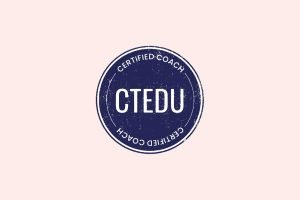Last updated on September 1, 2022
When people you touch with your message and knowledge base—whether it be a client, audience member—or seminar participant, start to tell you that you should write a book, it’s time to listen.
Is Authorship for You?
Not everyone is destined to write a book. In fact, there are many coaches and professionals who will never have the desire to write a book. Those bitten by the bug of authorship are a special group, and even if it seems like everyone and their mother is writing a book nowadays, books that are exceptional and reach their target audience are far and few. The reason is because people decide to write books, but they don’t pay heed to writing exceptional books.

As a book coach, I follow the mantra of “Go big or go home.” If someone wants to put all the time, investment, and sweat equity into writing a book, then it should not only be the best body of work, but a strong platform one as an author can stand on. Never mind the fact that books are expansive by nature, and I have seen countless clients start with one idea for the book, only to realize they were sitting on a whole marketable system or trademarkable method.
What’s the Commitment?
Once you know you have the desire to write a book, it is smart to further understand your commitment to the long game. You want to be open to spontaneity in the writing, but also have a clear idea of how your narrative will support and enhance not just your business but you as a brand.
Writing a book properly involves a minimum of three drafts, and if you work with a coach like myself who demands a higher level of vocabulary and willingness to grow as a writer, you will be pushed to evolve. Writing a good book is like a master’s program, but a lot faster.
Why All That Hard Work Is Worth It
Whether you are a coach who earns your bread and butter from mainly one-on-one coaching, or a coach who has online programs that reach thousands, the book can stretch your reach exponentially. For some, that could be to engage more buyers to a product base, but for others, this can be a foray into identification as an author and the avenues that can serve.
If you are currently not a coach, but you love personal development and have a great message to share that you feel is untapped, you can write the book, become an author, and teachings will emerge from your content. You may then see a business model in the making. The goal in writing a book is to illuminate a wider audience, and that can only be done when you understand who that audience is, and why you as the coach/author wants to reach them.
Writing a good book is like a master’s program, but a lot faster.
I have chatted with potential authors who say to me, “I just want to write a book for me; I am okay if it doesn’t do that great.” I think, “Why? Why would you put all that time and effort into writing a book only to let it just fade?” If you have spoken to peers who wrote books, you know that the endeavor was challenging and time-consuming—yet also illuminating and rewarding at the same time.
So, if you decide to write a book, and can’t stop thinking about writing a book, batting away the idea is futile. The time has come to drill down into the facts and make an informed decision.
The Book as a Business
I like to pull people out of the fear of perfectionism and writing performance and help them make a decision to write a book based on achievable quantifiable facts. In other words, let’s look at the book as a business. The spinning in your head about whether writing a book is worth the sacrifice is pointless if you are not making an educated decision.
Take this example of a dream trip to Mexico. If you were deciding where to stay on your trip, you may be weighing the all-inclusive resort or an Airbnb. The latter may be less expensive, but then you have to find all your meals, and you don’t like to shop or cook on vacation. That said, you don’t drink alcohol, so the resort would have activities largely centered around drinks by the pool. At the Airbnb, you wouldn’t be around as much of a party crowd.
If you decide to write a book, and can’t stop thinking about writing a book, batting away the idea is futile.
The point I am making here is not to help you figure out where to go on holiday, but rather understanding who you are on that trip. Making the decision to write a book operates in the same way. When deciding, stay in the facts, but trust in the passion. You love Mexico and can’t wait to go, but you need to be grounded on the best way to go forth. You want to write a book but need to understand the climate for your best success.
Therefore, to focus in on your objectives, we first ask questions framing the book as a business. To write an exceptional book for your business, you have to be all in. You need to stand behind that book and talk about it often.

Ask yourself first these questions about the journey you could have with the book:
- Am I open to learning what writing a book may teach me about my brand and my audience? Am I a person willing to pivot?
- Do I want to work to fine-tune my voice so I can also bring my message to stages, articles, and podcasts?
- Do I find that this book is worth the time and energy I may have to sacrifice for a limited time to get the job done?
Then we go to the more bottom-line questions about writing the book:
- Do I have the financial resources to afford help writing the book and also the marketing monies necessary to promote a book?
- Do I see myself speaking from the stage with content from the book as part of my coaching platform and teachings?
- Is it meaningful for me to be equipped to help my own clients navigate the decision to write a book for themselves since I have done it?
Take a look at these simple but potent six questions, and if you are 85% at a yes, go for the book.
Once You’ve Decided to Go For It
Here is the good news: you can’t lose writing a book, you will only win. I have helped many clients and author peers navigate the waters of literary success to come out the other side with a new awareness of their unique expertise out in the world. Their business gets redirected, or expanded, or re-branded. Always for the better, never the worse.
The truth is this: there is only one you, with a specific way you speak and present to your followers or clients. Only you have lived your life, so your personal narrative helps you to be relatable on a deeper and more personal level without having to tell stories about yourself all the time. You can set up a brand story in a book and have that also be used in other areas of marketing in your business. Writing a book is where need and want meet and equal a new window of success.

Kim O'Hara
Book Coach to Best Sellers™ Kim O’Hara has guided over 40+ coach/leader/executive clients through the daunting journey of book inception to publishing. Through her exclusive brand, she illuminates and inspires authors to find their core narrative message. Called a “book sherpa” and “guardian angel” by her clients, Kim provides clarity about a book’s purpose and the foundational structure to execute a vision to a wider audience.























Be First to Comment